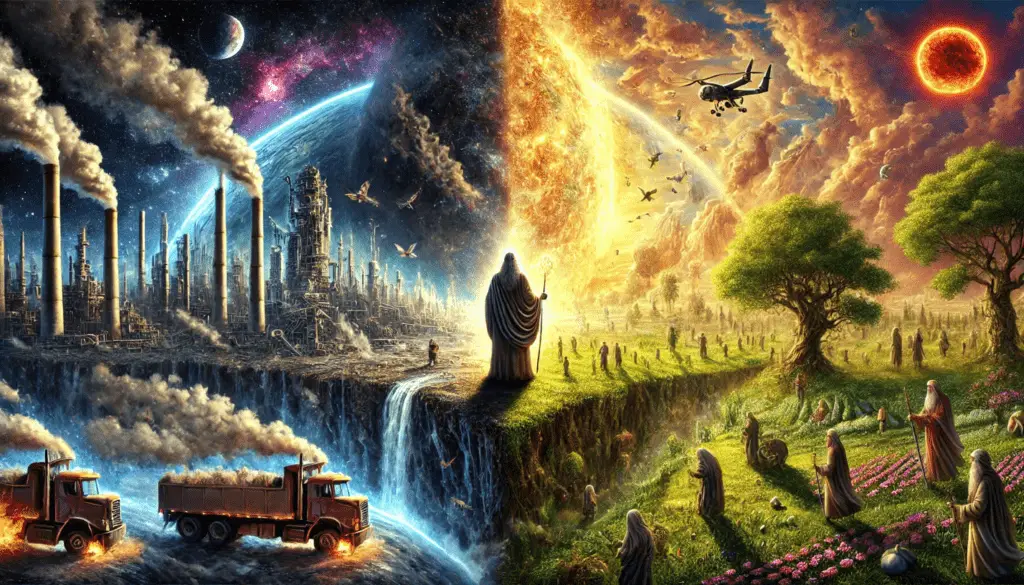Wisdom has long been revered as the highest form of human understanding and is the peak of the seven adjutant mind spirits, as taught in the Urantia Book. But does it require a connection to a higher power? Can one truly be wise without acknowledging something greater than oneself—whether that be God, the Universe, or a deeper cosmic order?
While knowledge and intellect allow us to analyze, predict, and strategize, wisdom functions on a different level. True wisdom is not just about knowing—it is about understanding in a way that aligns with higher truths and moral clarity.
Wisdom vs. Intellect: The Key Difference
Intellect is the ability to reason, analyze, and problem-solve. A highly intellectual person can manipulate facts, debate complex issues, and craft effective strategies. But wisdom is different—it requires discernment, humility, and purpose. Without these, what we call wisdom may simply be calculated self-interest rather than true enlightenment.
For example, a person may have the intellectual prowess to build an empire, outmaneuver rivals, or master the mechanics of the stock market. But if their guiding force is self-gain rather than truth or service, is that truly wisdom?
The Role of Higher Perspective in Wisdom
Throughout history, some of the wisest figures—Socrates, Confucius, Buddha, Jesus—taught that wisdom is about alignment with universal principles: justice, love, compassion, and truth. These principles suggest a moral architecture to reality, something beyond personal preference or social convention.
Without a higher power or transcendent moral compass, what defines wisdom? Without absolute truth, does wisdom become nothing more than intellectual pragmatism—a matter of what “works” rather than what is inherently right?
The Difference Between Pragmatism and True Wisdom
A purely secular perspective may argue that wisdom can exist without spirituality—simply the refinement of experience, logic, and foresight. While this is true, wisdom without a higher power risks being reduced to mere strategy—a tool that can be wielded for good or manipulation.
True wisdom, however, is often selfless. It is not just about making the “smart” decision but the right one. It does not merely optimize outcomes but seeks higher truth, justice, and goodness.
What Does the Urantia Book Say About Wisdom?
The Urantia Book describes wisdom as spiritualized knowledge—truth illuminated by love, and intellect guided by divine insight. It suggests that wisdom is not merely the refinement of human thought but the harmonization of mind with cosmic truth.
Without a higher power—or at least the recognition of something greater than ourselves—wisdom risks becoming limited to human cleverness rather than a path to enlightenment. True wisdom requires seeing beyond personal advantage and aligning with something timeless, just, and true.
Final Thoughts: Can Wisdom Exist Without a Higher Power?
- If wisdom is experience-based insight, it can exist in a secular sense.
- But if wisdom means ultimate understanding, righteous discernment, and cosmic truth, then it seems intrinsically tied to something greater than ourselves—whether we call that God, the Universe, or Divine Intelligence.
At its core, wisdom is about seeing life through a broader, more enlightened perspective. Whether one calls that divine guidance or universal truth, it seems clear that wisdom is most complete when it is rooted in something beyond mere human intellect.
What do you think? Can wisdom exist without a higher power, or is it inherently spiritual? Let’s discuss in the comments below!

